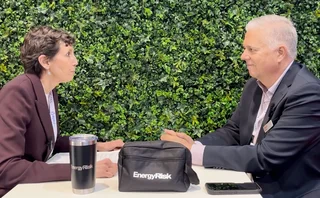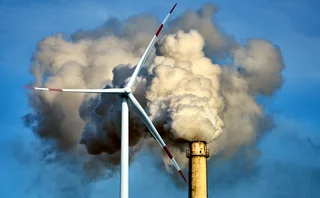CantorCO2e to hold first binding CER auction
CantorCO2e says the internet-based auction, for 260,000 CERs generated from three biomass projects owned by Chilean forestry company Arauco, has drawn interest from 120 participants from banks, utilities, and hedge funds from Europe, the US and Japan. A binding contract for the sale of the CERs will be complete following the close of the auction.
“While other companies have offered to sell CERs by auction in the past, these previous offerings involved bidding for the right to enter into negotiations with the seller of the CERs, resulting in only a potential to transact at some time in the future,” says a CantorCO2e statement. “These previous offerings therefore have offered no guarantee of a consummated transaction.”
James Emanuel, commercial director at CantorCO2e, says their auction differs from existing CER trading platforms because it allows both large and small players to participate. On other CER markets buyers must buy the entire volume of CERs on offer, while CantorCO2e’s auction allows different amounts to be bought, giving smaller players access to the market. “Additionally, many of the barriers that currently exist in the market, such as the requirement for buyers to become project participants in order to take delivery of the CERs, are eliminated when using the CantorCO2e auction,” says Emanuel.
On the day, sellers will set a floor price for the CERs they wish to sell and they will not be sold below that price. CantorCO2e will take an average of these floor prices to create a reserve price for buyers – a fixed clearing price that all the CERs will be sold at. Participants with floor prices below the reserved price will automatically be dropped out of the auction.
A binding contract will be automatically created once a purchase is made and the CERs will be delivered to buyers within 10 days of the auction via the Swiss national emission registry. Prices will immediately be available to the public and successful participants will be charged a transaction cost by CantorCO2e.
Arauco previously sold its CERs to one buyer but says this restricted demand to only buyers with the appetite for large volumes of CERs. “The auction will allow Arauco to be matched with as many buyers as is necessary to achieve the best price,” says Gianfranco Truffello, chief financial officer of Arauco, “and without any additional work and no further transaction costs for the company”.
CERs are created by clean development mechanism (CDM) projects, which mostly take place in India, China and Latin America. The CDM was designed as part of the Kyoto Protocol to help developing countries produce energy in a more environmentally friendly manner.
CantorCO2e is looking into plans to provide similar auctions for Verified Emission Reductions (VERs) and EU emission allowances (EUAs) in the future.
More on Carbon
Interview: Abaxx’s Joe Raia on LNG, Corsia and wind contracts
Abaxx’s Joe Raia talks to Energy Risk at E-World 2026 about the performance of its LNG and Corsia contracts and its latest wind contracts
Uncertainty causes rethink on clean energy investment
Waning enthusiasm for net-zero pledges, environmental policy shifts, funding cuts and US tariffs are causing clean energy investors to retreat
Emissions house of the year: Grey Epoch
Energy Risk Awards 2025: Carbon trader meets clients’ increasing needs through deep expertise and ability to warehouse risk
Environmental products house of the year: Marex
Energy Risk Awards 2025: Marex Environmental spans firm to give all clients access to green markets
Market-maker/liquidity provider of the year: OTC Flow
Energy Risk Awards 2025: Environmental trader and broker furthers liquidity provision with new presence on exchange
Commodity trade finance house of the year: Tramontana
Energy Risk Awards 2025: Investment firm creates unique carbon trade finance vehicles enabling long-term hedging while developing carbon market liquidity
Voluntary carbon markets house of the year: SCB Environmental Markets
Energy Risk Awards 2025: Environmental specialist amplifies its commitment to the VCM
Green knights? Banks step into struggling carbon credit markets
Clearer global standards and a new exchange may attract dealer entry, but supply and demand challenges remain







